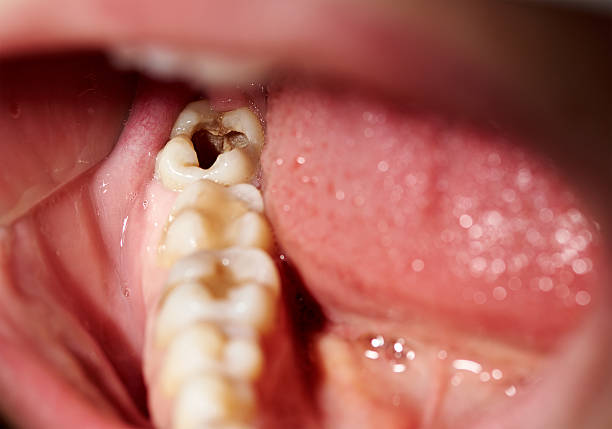Sugar(शुगर): The Enemy of Humankind
Sugar(शुगर) – People who consume too much added sugar can increase blood pressure and increase systemic inflammation, both of which are pathological pathways to cardiovascular disease. Since liquid calories are less filling than calories from solid foods, consuming too much sugar, especially in the form of sugary drinks, also leads to weight gain by deceiving your body into shutting down your appetite control system. That’s why eating more sugar-filled drinks makes it easier for people to increase the calories in their daily diet.
“The effects of added sugar intake — higher blood pressure, inflammation, weight gain, diabetes, and fatty liver disease — are all linked to an increased risk for heart attack and stroke,” says Dr. Hu.
1. No nutritional value of Sugar(शुगर)
A sugary food is calorie-void.

It adds no nutritional value and dramatically raises the calorie content of foods and beverages. These foods and beverages are typically quickly absorbed by the body. This means that they are not a good source of energy.
Things that are naturally sugar-containing are not the same. Fruits and dairy products, for instance, naturally contain sugars. These foods provide a steady supply of energy because the body breaks them down more slowly.
These goods frequently include additional nutrients. For instance, they have a variety of vitamins and minerals as well as fiber.
About 308 calories (Trusted Source) are obtained from added sugars by the average adult in the United States each day. This is significantly more than the 100 calories for females and 150 calories for males from added sugars recommended by the American Heart Association (AHA) Trusted Source.
The health advantages of consuming other foods and beverages that do have nutritional value are undermined when empty calories are consumed. It may also result in imbalances, such as nutrient deficiencies that exacerbate pre-existing medical conditions.
2. Weight Gain – Obesity due to Sugar(शुगर)
A significant risk of consuming excess dietary sugar is weight gain.

In most cases, sugary foods and drinks are high in calories. Even with regular exercise, eating too many of these products will result in weight gain. Robust evidence (Trusted Source) indicates that overeating sugar in the diet contributes to weight gain.
Products with added sugars are typically digested by the body more quickly, so they don’t satisfy hunger for very long. This may result in consuming more calories overall and eating more frequently throughout the day.
Additionally, there is some data indicating sugar may have an impact on the physiological processes that control appetite. The hormone leptin is a reliable source that controls appetite by figuring out how much energy the body requires. Obesity and weight gain can result from leptin dysfunction.
Leptin resistance may result from a diet high in fat and sugar, according to a 2011 study conducted on rats. When the body stops reacting to leptin as it should, it develops leptin resistance. The researchers discovered that eliminating sugar from the diet caused leptin resistance to reverse. According to a 2014 Trusted Source, sugar-filled beverages may pose a special risk for leptin resistance. It’s crucial to remember that sugar does not automatically lead to weight gain and obesity. Among the causes is sugar. A complex interplay between genetics, physical activity, diet, and social and environmental factors leads to overweight or obesity.
Still, cutting back on sugar in the diet is one of the easiest ways to avoid gaining weight. A significant risk of consuming excess dietary sugar is weight gain.
In most cases, sugary foods and drinks are high in calories. Even with regular exercise, eating too many of these products will result in weight gain. Robust evidence (Trusted Source) indicates that overeating sugar in the diet contributes to weight gain.
Products with added sugars are typically digested by the body more quickly, so they don’t satisfy hunger for very long. This may result in consuming more calories overall and eating more frequently throughout the day.
Additionally, there is some data indicating sugar may have an impact on the physiological processes that control appetite.
A hormone called leptin (Trusted Source) controls appetite by figuring out how much energy the body requires. Obesity and weight gain can result from leptin dysfunction.
Leptin resistance may result from a diet high in fat and sugar, according to a 2011 study conducted on rats. When the body stops reacting to leptin as it should, it develops leptin resistance. The researchers discovered that eliminating sugar from the diet caused leptin resistance to reverse.
An additional study According to a 2014 Trusted Source, sugar-filled beverages may pose a special risk for leptin resistance.
It’s crucial to remember that sugar does not automatically lead to weight gain and obesity. Among the causes is sugar. A complex interplay between genetics, physical activity, diet, and social and environmental factors leads to overweight or obesity.
Still, cutting back on sugar in the diet is one of the easiest ways to avoid gaining weight.
3. Sugar(शुगर) May Have Diabetes
Consuming sugar-filled beverages is associated with an increased risk of type 2 diabetes.

The claim that sugar causes diabetes is untrue. Type 2 diabetes is a result of any high-calorie diet.
Nonetheless, sugar-rich diets are typically high in calories. Diabetes risk may rise as a result of this.
Particularly troublesome are drinks with added sugar.
Following data analysis, it was discovered that people who drank more sugar-filled beverages than others had a 26% higher risk of developing type 2 diabetes. “High consumption” was defined in the study as consuming one or two sugary drinks daily.
4. Sugar(शुगर) May Face Tooth cavity Issues
Consuming sugar can lead to tooth decay, which can eventually result in cavities.

Following a sugary meal, oral bacteria produce a thin plaque coating on teeth. The sugars in food and beverages cause these bacteria to react. An acid that damages teeth is released as a result of this reaction.
Some of this damage can be fixed by the body on its own. However, a diet heavy in sugar will eventually lead to long-term harm. Tooth cavities may result from this. Permeant holes, or cavities, develop on teeth.
Avoiding sugar-rich foods is one of the best ways to avoid tooth decay (Trusted Source).
5. High Chances of Heart disease due to Sugar(शुगर)
Diets heavy in sugar may raise the risk of heart disease.

According to the findings of a 15-year study, persons who consume large amounts of added sugar in their diet have a markedly higher risk of dying from heart disease than those who consume small amounts of added sugar.
Once more, data points to sugar-filled beverages as potentially especially harmful for raising the risk of heart disease Trusted Source. This correlation could arise from the fact that sugar-filled beverages are heavy in calories, have no effect on hunger, and offer little energy.
More investigation is needed to fully comprehend the connection between sugar and heart disease, despite the obvious link.
Additives can be found in a surprising number of products. One way to prevent added sugar in food is to inspect the ingredients before purchasing it.
However, because added sugar goes by many different names on some food labels, it can be challenging to determine whether a product contains it.
Other terms for added sugar include, for instance:
1. Dextrose
2. Sucrose
3. Agave Nectar
4. Maltose
5. Molasses
6. Honey
7. High-Fructose Corn Syrup
8. Corn Sweetener
9. Crystalline Fructose
10. Evaporated Cane Juice
Daily Consumption of Sugar(शुगर)
To maintain a healthful diet, males should consume no more than 36 grams (g) of added sugar per day, and females to consume no more than 25 g per day.
Disclaimer-
This article’s sole goal is to increase awareness and spread knowledge. It is not meant to take the place of expert medical advice.


1 thought on “Sugar(शुगर) : The Enemy of Humankind 1”